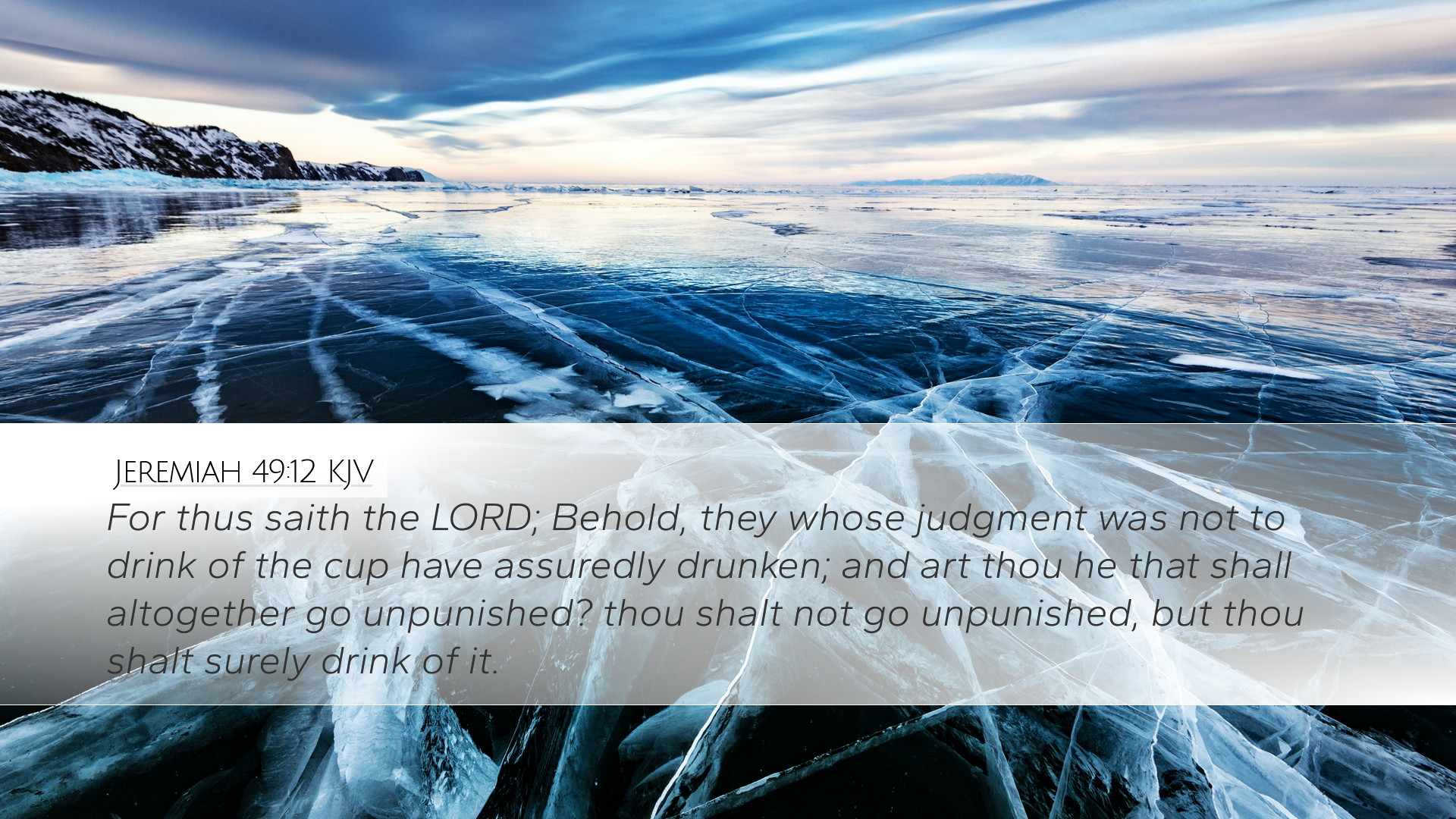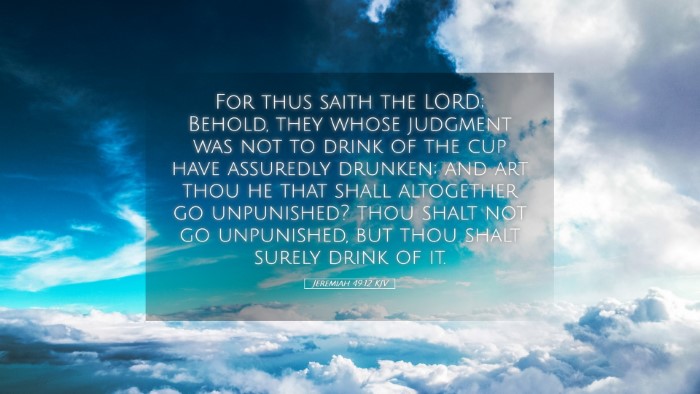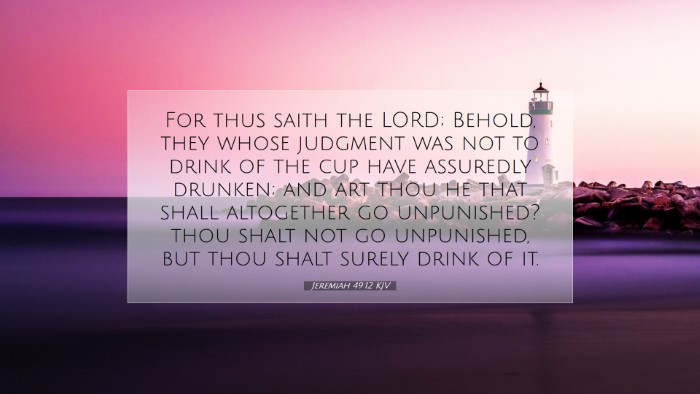Commentary on Jeremiah 49:12
Verse Reference: Jeremiah 49:12 - "For thus saith the Lord; Behold, they whose judgment was not to drink of the cup have assuredly drunk; and art thou he that shall altogether go unpunished? thou shalt not go unpunished, but thou shalt surely drink of it."
Contextual Overview
The prophetic words of Jeremiah often convey deep theological truths wrapped in the context of historical judgment and divine sovereignty. In Jeremiah 49:12, the passage addresses the fate of Edom, a nation known for its pride and animosity toward Israel. This section of Jeremiah highlights the theme of inevitable judgment upon nations that oppose God's people and, ultimately, God's will.
Theological Insights
-
Divine Justice:
The verse emphasizes God's justice, with the imagery of a cup representing judgment. Matthew Henry notes that the “cup” symbolizes the divine wrath that even those seeming innocent (like Edom) will not escape. This highlights the principle of “sowing and reaping” in God's economy. Just as others faced consequences, so too will Edom, despite their initial belief that judgment would not fall upon them.
-
Unavoidable Consequences:
Albert Barnes elaborates on the idea that even those not initially destined for punishment must face their share of God's wrath. This serves as a sober reminder that divine justice is impartial. The verse underscores the theology of accountability before God. Edom's pride places it under the same divine scrutiny as Jerusalem, emphasizing that judgment is inevitable for all nations that oppose God's righteousness.
-
God’s Sovereign Authority:
Adam Clarke comments on the sovereignty of God in executing judgment. He argues that no human reasoning can escape the parameters of divine will; even those who consider themselves exempt from the wrath of God will eventually experience it. The implications of this verse extend to a warning against complacency and entitlement in God's favor, applicable to both nations and individuals.
Practical Applications
-
Self-Examination:
Jeremiah 49:12 invites believers to engage in self-reflection. How often do they consider themselves beyond the reach of God's correction? Pastors and theologians should encourage congregations to assess their spiritual standing before God, recognizing that His judgment is thorough.
-
Humility Before God:
The passage serves as a call for humility, as it reiterates that God's judgment does not overlook pride. As Matthew Henry remarks, no one should presume upon God's mercy; thus, humility and dependence on divine grace are essential for every believer.
-
Awareness of God’s Sovereignty:
Understanding God's sovereign control over nations and individuals helps cultivate a proper perspective on life’s challenges. Albert Barnes emphasizes that trials and tribulations are not arbitrary; they serve divine purposes. Engaging with this truth prepares believers to trust God amid adversity.
Conclusion
Jeremiah 49:12 encapsulates a core aspect of biblical theology: the certainty of God’s judgment. The prophetic nature of this verse transcends time, offering insights into the unchanging nature of God’s expectations for mankind. As scholars and students engage with this passage, they must remember the implications for both the individual and the community of faith. The call to accountability, humility, and a recognition of God’s unwavering sovereignty remain relevant in today's society.


